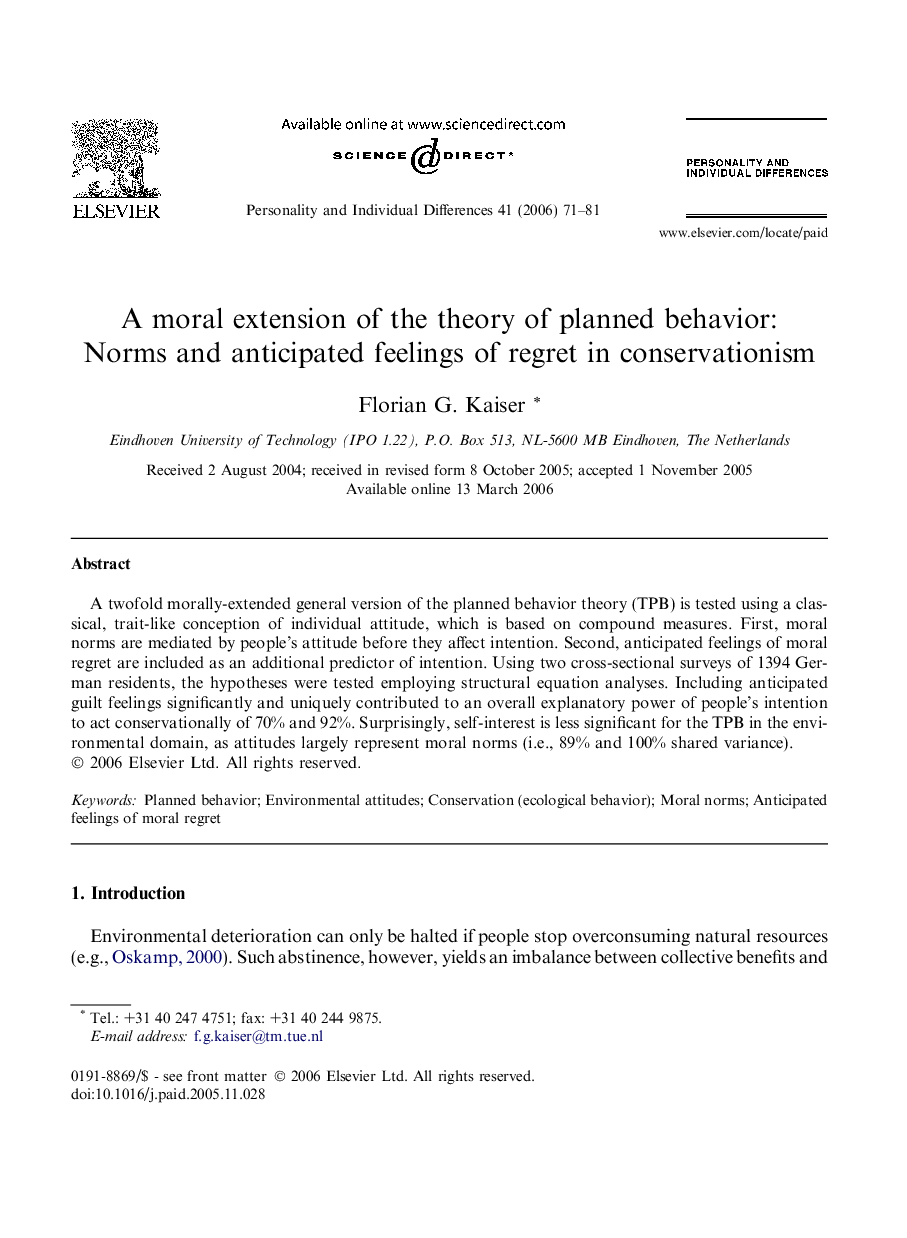| Article ID | Journal | Published Year | Pages | File Type |
|---|---|---|---|---|
| 893476 | Personality and Individual Differences | 2006 | 11 Pages |
A twofold morally-extended general version of the planned behavior theory (TPB) is tested using a classical, trait-like conception of individual attitude, which is based on compound measures. First, moral norms are mediated by people’s attitude before they affect intention. Second, anticipated feelings of moral regret are included as an additional predictor of intention. Using two cross-sectional surveys of 1394 German residents, the hypotheses were tested employing structural equation analyses. Including anticipated guilt feelings significantly and uniquely contributed to an overall explanatory power of people’s intention to act conservationally of 70% and 92%. Surprisingly, self-interest is less significant for the TPB in the environmental domain, as attitudes largely represent moral norms (i.e., 89% and 100% shared variance).
